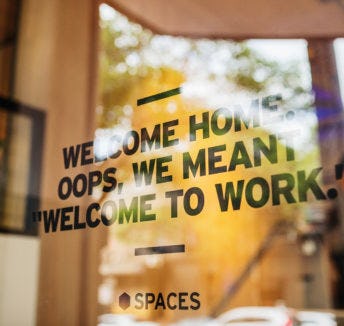
If COVID-19 has taught businesses anything, it’s that leadership matters. And for organisations adopting remote work in the face of further uncertainty, it matters more now than ever
Before COVID-19, business leaders needed exceptional skills in a range of areas, including communication, negotiation, project management, delegation, and networking. Post-pandemic, these skills are still relevant – though there are now others too that are deemed essential.
Digitalisation, globalisation, flexibility, and remote employment mean evolving traditional ‘old world’ skills to stay relevant and competitive. Take communication, for example, which now happens increasingly online – through emails, webchats and video calls. Leaders who relied on networking lunches and an ‘open door’ policy in the old world must now find ways to make themselves visible and available digitally to their clients and colleagues.
“It’s exponentially harder for a remote leader to manage a team, compared with a leader who is managing a team in person,” explains Phil Shawe, co-founder and co-CEO of translation services company TransPerfect. “To manage a team from a remote location, you need to make stronger efforts to keep in touch.”
A new set of skills
More than a quarter of respondents to a recent Prudential Financial survey said they worry they lack the skills that will be most in-demand when the economy ‘starts back up’. For leaders, the question is about which existing skills they can take with them into the new world – and which new ones they will quickly need to adopt. Some are perhaps less obvious but could benefit your business both today and in the future.
One of these is candour – being open and honest. “Arguably, the best antidote for a workplace climate of anxiety and cynicism is candour,” says Management consultant Dana Brownlee. “People respond so much better to the known (even if the news isn’t great), than the unknown (which tends to fuel more anxiety) or even worse misleading half-truths or irresponsible optimism (which can irreparably damage trust long term).”
Another key skill for the modern leader is empathy. According to studies carried out by Development Dimensions International (DDI), empathy is the biggest single leadership skill needed today, says Fast Company. “Being able to listen and respond with empathy is overwhelmingly the one interaction skill that outshines all other skills,” says Richard S. Wellins, senior vice president of DDI.
A third important skill for leaders is flexibility. Research by Oulu University of Applied Sciences shows that flexibility is the core of effective leadership. “Leaders strive to influence other people for the good of the organisation,” explains research author Antti Vaari. “To be effective in this, they must be flexible – making flexibility the key common factor enabling leaders to function effectively in various situations.”
What this means in the post-COVID world of work is resisting the temptation to “make a decision and stick with it” in an attempt to appear decisive when faced with unprecedented uncertainty. A willingness to review new information, listen to feedback and adapt how their business operates will be essential to a leader’s survival.
Time to adapt
So, how well equipped are those who will be filling senior leadership positions in the coming years? A study conducted by Rialto Consultancy shows that many leaders currently lack the necessary skills to move their organisations forward. That said, another study reveals that 77% of adults say that they would be willing to learn new skills now or completely retrain to improve their future employability.
To successfully meet the challenges of the new world, businesses and their leaders should take advantage of the new remote way of doing things, including utilising online learning resources and networking opportunities.
It’s also important for them to lead by example: fostering a supportive company culture that empowers leadership at all levels. “There a growing recognition that leadership development should not be restricted to the few who are in or close to the C-suite,” says the Harvard Business Review. Leaders who are willing to grow and develop as an individual – and do the same for others in their organisation – will reap the benefits now and in the years to come.
Share this article
 Read now Five facts about the future of business travel
Read now Five facts about the future of business travel
 Read now Welcome back – we’ve missed you
Read now Welcome back – we’ve missed you